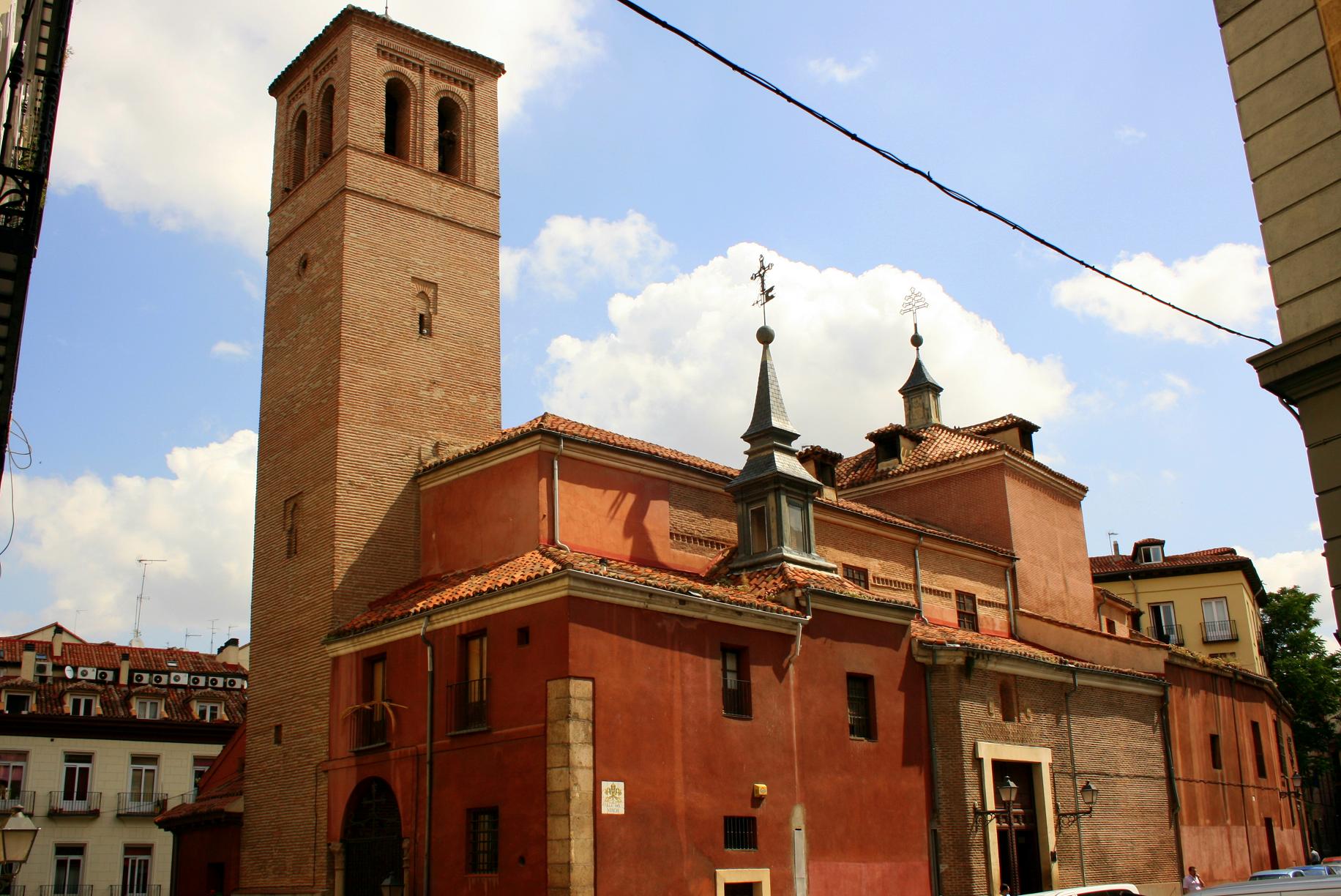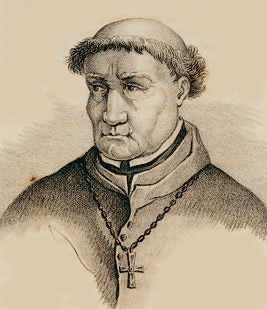|
Medrano Academy
The Medrano Academy (Spanish language, Spanish: ''Academia Medrano''), also known as the Poetic Academy of Madrid, was a prominent ''academia literaria'' of the Spanish Golden Age, founded by Dr. Sebastian Francisco de Medrano, Sebastián Francisco de Medrano. Active between 1616 and 1622 on Leganitos Street in Madrid, the academy brought together many of the most celebrated poets and playwrights of the Spanish Baroque literature, Baroque period, including Lope de Vega, Francisco de Quevedo, Luis de Góngora, Pedro Calderón de la Barca, Luis Vélez de Guevara, Alonso de Castillo Solórzano, and others. Founded by a rising poet of noble lineage, the Medrano Academy became one of Madrid’s most distinguished literary gatherings of the early seventeenth century, hosting Contesting, contests, Parody, lampoons, and royal visits that shaped the poetic culture of Spain’s Golden Age. Establishment The Medrano Academy was among the most significant ''Academia literaria, academias li ... [...More Info...] [...Related Items...] OR: [Wikipedia] [Google] [Baidu] |
Sebastian Francisco De Medrano
Sebastián Francisco de Medrano (Madrid, 1590–1653) was a prominent nobleman born into the Medrano family, a poet and playwright of the Baroque, Baroque period, and the founder and president of the Medrano Academy, located on Leganitos street in Madrid. He was the commissioner of the Spanish Inquisition, acting as the official censor of ''Comedia (play), comedias''. He was also chief chaplain, chief almoner, and priest at San Pedro el Real, Madrid, San Pedro el Real in Madrid. He became the Protonotary apostolic, Protonotary Apostolic of the Pope, Apostolic Judge, chaplain and treasurer for Gómez Suárez de Figueroa, 3rd Duke of Feria, Gómez Suárez de Figueroa, III Duke of Feria. Medrano was the author of the celebrated miscellany ''Favores de las Musas''. The Spanish novelist and playwright Alonso de Castillo Solórzano described Medrano as "the prince of the most renowned Academy Madrid ever had." Career Sebastián Francisco de Medrano was a poet of the Spanish Golden A ... [...More Info...] [...Related Items...] OR: [Wikipedia] [Google] [Baidu] |
Parody
A parody is a creative work designed to imitate, comment on, and/or mock its subject by means of satire, satirical or irony, ironic imitation. Often its subject is an Originality, original work or some aspect of it (theme/content, author, style, etc), but a parody can also be about a real-life person (e.g. a politician), event, or movement (e.g. the French Revolution or Counterculture of the 1960s, 1960s counterculture). Literary scholar Professor Simon Dentith defines parody as "any cultural practice which provides a relatively polemical allusive imitation of another cultural production or practice". The literary theorist Linda Hutcheon said "parody ... is imitation, not always at the expense of the parodied text." Parody may be found in art or culture, including literature, parody music, music, Theatre, theater, television and film, animation, and Video game, gaming. The writer and critic John Gross observes in his ''Oxford Book of Parodies'', that parody seems to flourish on te ... [...More Info...] [...Related Items...] OR: [Wikipedia] [Google] [Baidu] |
Spanish Inquisition
The Tribunal of the Holy Office of the Inquisition () was established in 1478 by the Catholic Monarchs of Spain, Catholic Monarchs, King Ferdinand II of Aragon and Queen Isabella I of Castile and lasted until 1834. It began toward the end of the ''Reconquista'' and aimed to maintain Catholic Church, Catholic orthodoxy in their kingdoms and replace the Papal Inquisition in Spain, Medieval Inquisition, which was under Pope, papal control. Along with the Roman Inquisition and the Portuguese Inquisition, it became the most substantive of the three different manifestations of the wider Catholic Inquisition. The Inquisition was originally intended primarily to identify Heresy in Christianity, heretics among those who converted from Judaism and Islam to Catholicism. The regulation of the faith of newly converted Catholics was intensified following Alhambra Decree, royal decrees issued in 1492 and 1502 ordering Jews and Muslims to convert to Catholicism or leave Crown of Castile, Ca ... [...More Info...] [...Related Items...] OR: [Wikipedia] [Google] [Baidu] |
The Arts
The arts or creative arts are a vast range of human practices involving creative expression, storytelling, and cultural participation. The arts encompass diverse and plural modes of thought, deeds, and existence in an extensive range of media. Both a dynamic and characteristically constant feature of human life, the arts have developed into increasingly stylized and intricate forms. This is achieved through sustained and deliberate study, training, or theorizing within a particular tradition, generations, and even between civilizations. The arts are a medium through which humans cultivate distinct social, cultural, and individual identities while transmitting values, impressions, judgments, ideas, visions, spiritual meanings, patterns of life, and experiences across time and space. The arts are divided into three main branches. Examples of visual arts include architecture, ceramic art, drawing, filmmaking, painting, photography, and sculpture. Examples of literature i ... [...More Info...] [...Related Items...] OR: [Wikipedia] [Google] [Baidu] |
Literature
Literature is any collection of Writing, written work, but it is also used more narrowly for writings specifically considered to be an art form, especially novels, Play (theatre), plays, and poetry, poems. It includes both print and Electronic literature, digital writing. In recent centuries, the definition has expanded to include oral literature, much of which has been transcribed.; see also Homer. Literature is a method of recording, preserving, and transmitting knowledge and entertainment. It can also have a social, psychological, spiritual, or political role. Literary criticism is one of the oldest academic disciplines, and is concerned with the literary merit or intellectual significance of specific texts. The study of books and other texts as artifacts or traditions is instead encompassed by textual criticism or the history of the book. "Literature", as an art form, is sometimes used synonymously with literary fiction, fiction written with the goal of artistic merit, but ... [...More Info...] [...Related Items...] OR: [Wikipedia] [Google] [Baidu] |
Patronage
Patronage is the support, encouragement, privilege, or financial aid that an organization or individual bestows on another. In the history of art, art patronage refers to the support that princes, popes, and other wealthy and influential people have provided to artists such as musicians, painters, and sculptors. It can also refer to the right of bestowing offices or church benefices, the business given to a store by a regular customer, and the guardianship of saints. The word ''patron'' derives from the Latin ('patron'), one who gives benefits to his clients (see patronage in ancient Rome). In some countries, the term is used to describe political patronage or patronal politics, which is the use of state resources to reward individuals for their electoral support. Some patronage systems are legal, as in the Canadian tradition of the prime minister appointing senators and the heads of a number of commissions and agencies; in many cases, these appointments go to people who ha ... [...More Info...] [...Related Items...] OR: [Wikipedia] [Google] [Baidu] |
Medrano
Medrano is a Spanish surname of Basque language, Basque origin that means "abundance, to grow, to prosper, or to improve." It is a surname of high nobility established in the old Kingdoms of Kingdom of Navarre, Navarre, Kingdom of Aragon, Aragon, kingdom of Castile, Castile, Kingdom of France, France, etc. They are all descendants of their progenitor, Prince Palace of Vélaz de Medrano#Progenitor, Andrés Vélaz de Medrano.Caro Baroja, Julio. ''Etnografía Histórica de Navarra''. Vol. 2. Editorial Aranzadi, 1972, pp. 380–381 https://www.fundacioncajanavarra.es/cultura-y-educacion/archivo/etnografia-historica-de-navarra-volumen-II.pdf Medrano may refer to: People Notable people with the surname include: Medieval and early modern nobility * María Ramírez de Medrano, Lady of Fuenmayor, wealthy noblewoman in the 12th century, founder of the Commandery, hospital and convent of San Juan de Acre in Navarrete to protect pilgrims on the Camino de Santiago, donated some of her lands ... [...More Info...] [...Related Items...] OR: [Wikipedia] [Google] [Baidu] |
Biblioteca Nacional De España
The (National Library of Spain) is the national library of Spain. It is the largest public library in the country, and one of the largest in the world. Founded in 1711, it is an autonomous agency attached to the Ministry of Culture since 1990. Its headquarters is located on the Paseo de Recoletos in Madrid, sharing the building with the National Archaeological Museum. History The library was founded by King Philip V in 1711 as the Royal Library or Palace Public Library. The Royal Letters Patent that he granted, the predecessor of the current legal deposit requirement, made it mandatory for printers to submit a copy of every book printed in Spain to the library. In 1836, the Crown transferred the library to the Ministry of Governance and it was renamed as National Library. A year later, women were allowed access to the library for the first time, after a petition from writer Antonia Gutiérrez was granted by Queen Regent Maria Christina. During the 19th century, co ... [...More Info...] [...Related Items...] OR: [Wikipedia] [Google] [Baidu] |
Priest
A priest is a religious leader authorized to perform the sacred rituals of a religion, especially as a mediatory agent between humans and one or more deity, deities. They also have the authority or power to administer religious rites; in particular, rites of sacrifice to, and propitiation of, a deity or deities. Their office or position is the "priesthood", a term which also may apply to such persons collectively. A priest may have the duty to hear confessions periodically, give marriage counseling, provide prenuptial counseling, give spiritual direction, teach catechism, or visit those confined indoors, such as the sick in hospitals and nursing homes. Description According to the trifunctional hypothesis of prehistoric Proto-Indo-European society, priests have existed since the earliest of times and in the simplest societies, most likely as a result of agricultural surplus#Neolithic, agricultural surplus and consequent social stratification. The necessity to read sacred text ... [...More Info...] [...Related Items...] OR: [Wikipedia] [Google] [Baidu] |
Jesuits
The Society of Jesus (; abbreviation: S.J. or SJ), also known as the Jesuit Order or the Jesuits ( ; ), is a religious order (Catholic), religious order of clerics regular of pontifical right for men in the Catholic Church headquartered in Rome. It was founded in 1540 by Ignatius of Loyola and six companions, with the approval of Pope Paul III. The Society of Jesus is the largest religious order in the Catholic Church and has played significant role in education, charity, humanitarian acts and global policies. The Society of Jesus is engaged in evangelization and apostolic ministry in 112 countries. Jesuits work in education, research, and cultural pursuits. They also conduct retreats, minister in hospitals and parishes, sponsor direct social and humanitarian works, and promote Ecumenism, ecumenical dialogue. The Society of Jesus is consecrated under the patron saint, patronage of Madonna della Strada, a title of the Blessed Virgin Mary, and it is led by a Superior General of ... [...More Info...] [...Related Items...] OR: [Wikipedia] [Google] [Baidu] |
Spain
Spain, or the Kingdom of Spain, is a country in Southern Europe, Southern and Western Europe with territories in North Africa. Featuring the Punta de Tarifa, southernmost point of continental Europe, it is the largest country in Southern Europe and the fourth-most populous European Union member state. Spanning across the majority of the Iberian Peninsula, its territory also includes the Canary Islands, in the Eastern Atlantic Ocean, the Balearic Islands, in the Western Mediterranean Sea, and the Autonomous communities of Spain#Autonomous cities, autonomous cities of Ceuta and Melilla, in mainland Africa. Peninsular Spain is bordered to the north by France, Andorra, and the Bay of Biscay; to the east and south by the Mediterranean Sea and Gibraltar; and to the west by Portugal and the Atlantic Ocean. Spain's capital and List of largest cities in Spain, largest city is Madrid, and other major List of metropolitan areas in Spain, urban areas include Barcelona, Valencia, Seville, ... [...More Info...] [...Related Items...] OR: [Wikipedia] [Google] [Baidu] |








